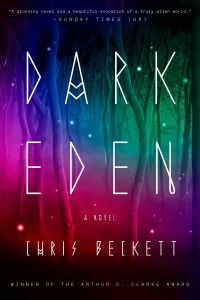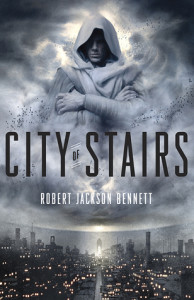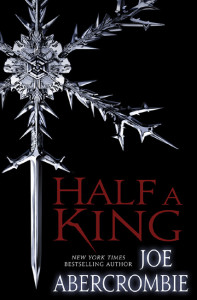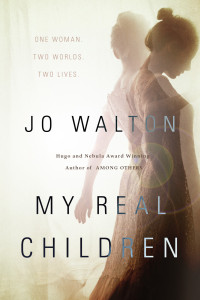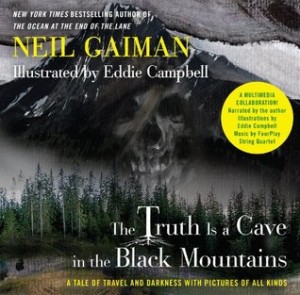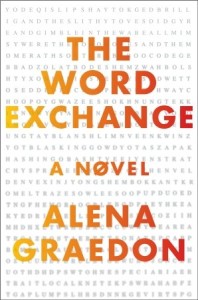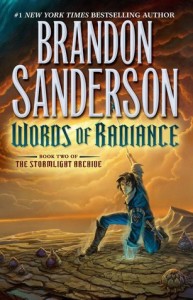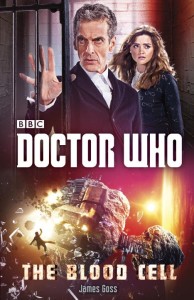
Doctor Who: The Blood Cell by James Goss is one of three new Doctor Who stories being released this Tuesday September 9th, 2014 by Broadway Books, which feature the Twelfth Doctor. I received this eARC through Blogging for Books via Edelweiss in exchange for an honest review. I was excited to get this book since I am a die hard Doctor Who fan. At the same time, I was not sure what to expect since at the time of this writing, only three episodes with the twelfth Doctor have aired. I even found myself reading it in Eleven’s voice, even when trying to keep Twelve’s in my head. I do wonder a little if putting these out now was in fact strategically smart with the momentum from the new season, or if it is too early since we had not yet had time to really get to know the latest regeneration or really see him as The Doctor.
Refocusing on the book, we join the Doctor in this adventure in a prison set in a remote asteroid. Very little is know upfront, we have no idea why the Doctor (Prisoner 428) is in this prison, what terrible event he is looking to avert, or where exactly Clara and the Tardis are. He obviously does have an agenda. Let’s face it, the Doctor almost always does. What we do knows is that he believes that something bad is going to happen and if the Governor of the prison does not work with him and release him, something bad will happen and people will start getting killed, which for the record, Clara shows up and petitions the Governor claiming the same thing. With the Doctor, these statements generally hold true, even if he is not aware of some impending doom. Since the Governor does not believe him, the Doctor decides he will just have to continually break out until they get the point. I cannot get too much deeper into the plot without spoilers, but needless to say, the prison is having problems and while everyone blames the Doctor, he wants to figure out what is really going on.
What is interesting about this narrative is that it is written in a first person point of view and not that of the Doctor or Clara, but of the Governor. This is somewhat of a change from other Who novels. It does offer a unique perspective that I can only think of one or two TV episodes that approached it this way. The plot itself was not bad. It seemed in line with what could be an episode this season. I have seen a number of other reviewers criticizing the ending, but I saw no problem with it. In all fairness, it was an ending I would come to expect from the current direction of the show. It actually felt a bit like the Satellite Five and later Gamestation episodes. Was it an amazing, epic Doctor Who adventure? Not particularly. Was it an awful adaptation of the Doctor? Certainly not. It was a fair and decent story. There were funny moments, suspenseful moments; it was Doctor Who.
One area I am normally very critical of is characterization, but novelization of a running character is really hard to fit into a regular square box. If you read the book, you should be well familiar with the character. The author should not be defining the main characters in a Doctor Who novel. They are already near and dear to the readers. Your only job is not to butcher them. What Goss did need to do was define the other characters which I felt he really did do a good job with. Also, since this is early in the 12th Doctor’s run, he did have to work with a personality we do not know much about yet and I think with that in mind, he fared quite well. The Doctor’s little quips and obliviously unflattering comments to Clara fit in with the first few Capaldi episodes. As does the spoon. I do not know if it was intentional, but a spoon does come into play in Season 8 Episode 3 as well as in this novel, which gave me a bit of a chuckle. The way it come up here though was something I may have expected more from the Tenth Doctor.
All in all I felt the book was pretty good for a Doctor Who story. As I said earlier, it is neither the worst nor best I have come across, but it was entertaining and engaging. I flew through it. I will admit it was tough to put down, I finished it in two days. It took a lot from the show and worked with a new Doctor that I honestly do not know enough about yet to criticize the portrayal. With that, it is considerably more difficult to rate. My gut says that it is a 3.5/5. If you are a Doctor Who fan, it is worth a read. Just do not expect a “Blink” or “A Good Man Goes to War”.

